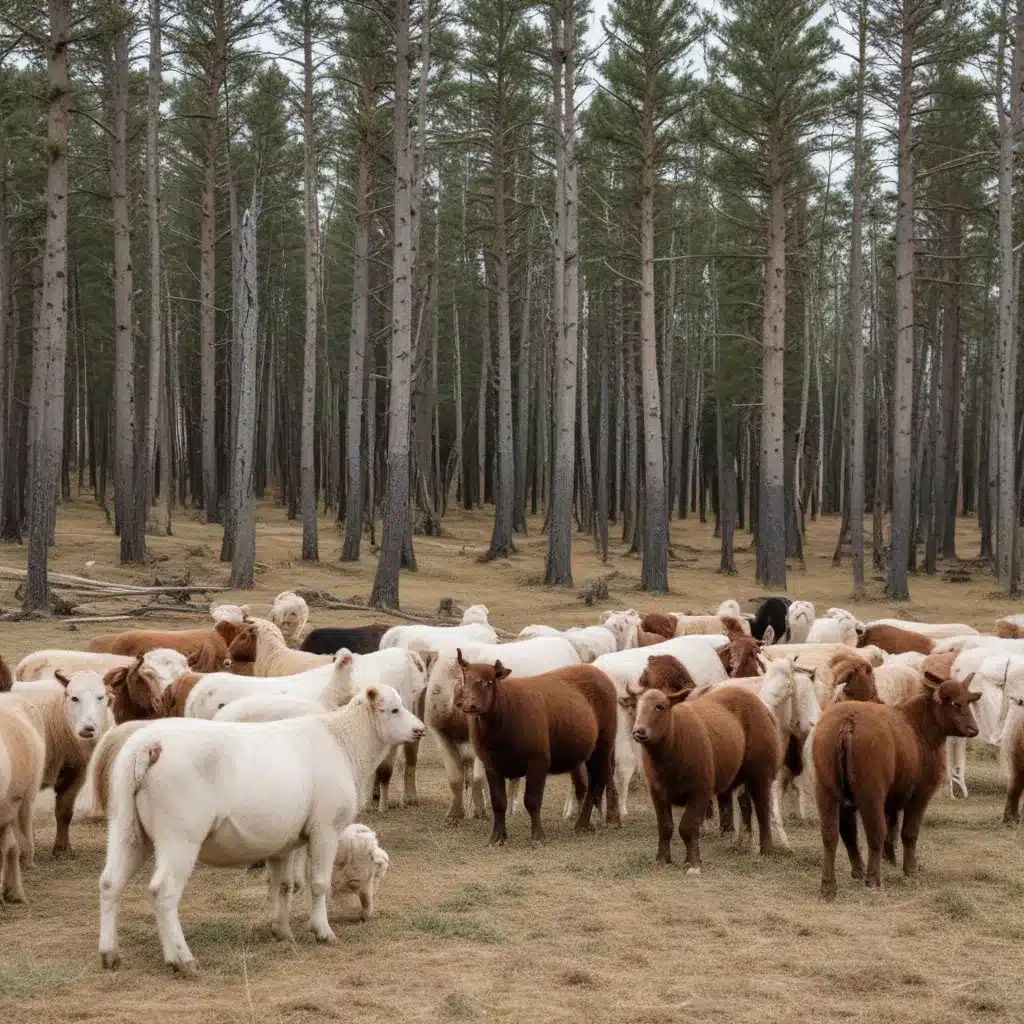
When you step onto the grounds of Crooked Pines Farm, you are immediately immersed in a vibrant ecosystem teeming with a diverse array of livestock. From the majestic heritage breeds grazing in the rolling pastures to the nimble foragers scurrying through the wooded trails, each creature plays a vital role in maintaining the delicate balance of this idyllic farming oasis.
Diverse Inhabitants of Crooked Pines
Breeds of Livestock
Crooked Pines is home to a veritable menagerie of livestock, each with its own unique characteristics and ecological niche. The farm proudly showcases rare heritage breeds like the stately Milking Devons, known for their exceptional milk production and docile temperament, as well as the rugged Gloucestershire Old Spots, renowned for their exceptional foraging abilities and flavorful pork.
Unique Characteristics
But the diversity at Crooked Pines extends far beyond these premier livestock varieties. The farm also plays host to a vibrant community of poultry, including the stately Orpingtons with their distinctive feather crests, the colorful Australorps renowned for their prolific egg-laying, and the inquisitive Silkies with their soft, fluffy plumage. Wandering amongst the feathered flock, you’ll also encounter the industrious Bourbon Red Turkeys, celebrated for their striking appearance and exceptional meat quality.
Ecological Niches
But the farm’s inhabitants go far beyond the traditional livestock and poultry. Crooked Pines is also home to a thriving herd of Kiko goats, nimble foragers that play a vital role in maintaining the delicate balance of the farm’s diverse ecosystems. These hardy, parasite-resistant goats are often found browsing on the nutrient-rich shrubs and undergrowth, ensuring the health and vitality of the surrounding forests and pastures.
The Livestock Ecosystem
Habitat and Environment
The livestock at Crooked Pines thrive in a meticulously curated environment, where each species’ unique needs are carefully tended to. The pastures are managed using holistic principles, with strategically placed tree lines and riparian zones providing essential shelter and water sources. The woodlands offer a diverse habitat for the goats and poultry, allowing them to engage in their natural foraging behaviors.
Interspecies Interactions
The harmonious interplay between the farm’s inhabitants is a sight to behold. The Milking Devons graze peacefully, their gentle presence complemented by the playful antics of the Kiko goats as they navigate the shrub-laden terrain. The Orpingtons and Australorps can often be seen scratching in the soil, unearthing insects and seeds to supplement their diets, while the Bourbon Red Turkeys strut proudly, their iridescent feathers glistening in the sun.
Adapting to Crooked Pines
The livestock at Crooked Pines have adapted remarkably well to the unique challenges presented by the farm’s environment. The Gloucestershire Old Spots, for instance, have developed a keen ability to navigate the rocky terrain and dense underbrush, relying on their foraging skills to thrive. The Silkies, with their delicate appearance, have proven to be remarkably hardy, thriving in the farm’s temperate climate and diverse ecosystems.
Sustainable Farming Practices
Holistic Management
At the heart of Crooked Pines’ success is their dedication to sustainable farming practices. The farm employs a holistic approach to land management, ensuring that each species plays a vital role in maintaining the overall health and productivity of the land. This includes strategic grazing patterns, composting, and the integration of cover crops to nourish the soil and support the diverse flora and fauna.
Organic Methodologies
The livestock at Crooked Pines are raised using organic principles, free from the use of synthetic pesticides and hormones. This not only ensures the highest quality of meat and dairy products, but also minimizes the farm’s environmental impact, preserving the delicate ecosystem for generations to come.
Conservation Efforts
In addition to their sustainable farming practices, Crooked Pines is actively engaged in conservation efforts to protect and restore the region’s native habitats. Through partnerships with local land trusts, the farm has established wildlife corridors and pollinator gardens, providing vital resources for a wide range of species, from pollinators to migratory birds.
Visitor’s Perspective
Touring the Farm
Visitors to Crooked Pines are in for a truly immersive experience, as they are invited to explore the farm’s diverse landscapes and ecosystems. Trail walks through the woodlands and pastures offer the opportunity to observe the livestock in their natural habitat, while guided tours provide a behind-the-scenes look at the farm’s sustainable practices and conservation efforts.
Educational Opportunities
For those seeking a more hands-on learning experience, Crooked Pines offers a wealth of educational opportunities. Farm nature explorations led by knowledgeable guides allow visitors to dive deeper into the intricate relationships between the farm’s inhabitants and their environment. Kids’ activities and DIY crafts encourage young visitors to engage with the natural world, fostering a deeper appreciation for the diversity of life found at Crooked Pines.
Appreciating Biodiversity
As visitors depart Crooked Pines, they are left with a profound sense of wonder and appreciation for the biodiversity that thrives within the farm’s boundaries. The livestock, poultry, wildlife, and pollinators all play a vital role in creating a vibrant, resilient ecosystem – a testament to the power of sustainable farming practices and the conservation of our natural resources.
Crooked Pines Farm is a shining example of how a commitment to diversity, sustainability, and education can create a thriving agricultural haven that benefits both the land and the community. Whether you’re a seasoned farmer, a curious forager, or a family seeking a nature-based adventure, a visit to Crooked Pines is an experience that will leave a lasting impression on your heart and mind.


